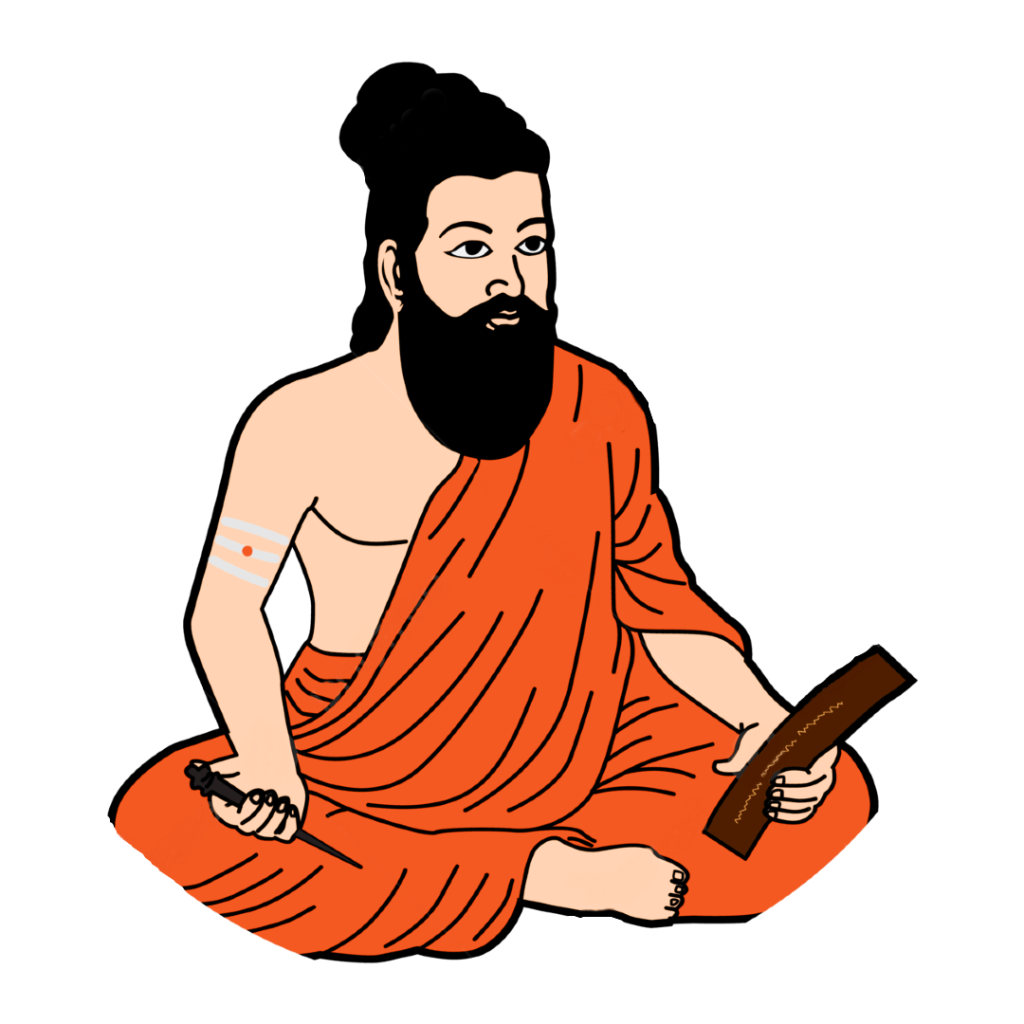
Vedangas
The auxiliary disciplines or limbs of the Vedas
Vedangas are the auxiliary disciplines or limbs of the Vedas. They are essential for understanding and interpreting the Vedic texts. There are six Vedangas, which are as follows
Shiksha (Phonetics)
Shiksha deals with the correct pronunciation and phonetics of the Vedic mantras. It provides guidance on the proper articulation of sounds, accents, and the rules of chanting.
Kalpa (Rituals and Procedures)
Kalpa deals with the rituals, procedures, and ceremonies prescribed in the Vedas. It includes Srauta Sutras (rituals related to sacrifices), Grihya Sutras (domestic rituals), Dharma Sutras (codes of conduct and ethics), and Shulba Sutras (mathematical calculations for construction of altars).
Vyakarana (Grammar)
Vyakarana deals with the grammar and linguistic analysis of the Vedic texts. It provides rules for word formation, sentence structure, and interpretation. The most famous Vyakarana text is Panini’s Ashtadhyayi.
Nirukta (Etymology)
Nirukta deals with the etymology and interpretation of Vedic words and phrases. It provides explanations and definitions of uncommon words and linguistic variations found in the Vedic texts. The Nirukta text by Yaska is a well-known work in this field.
Chandas (Metrics)
Chandas deals with the poetic meters and prosody of the Vedic hymns. It provides rules for the rhythmic patterns, syllable counts, and other aspects of Vedic poetry.
Jyotisha (Astronomy and Astrology)
Jyotisha deals with the astronomical calculations, timekeeping, and the study of celestial bodies. It provides insights into the Vedic calendar, astrology, and the significance of celestial events in Vedic rituals.
Conclusion:
These Vedangas are considered essential for the proper understanding, recitation, and interpretation of the Vedas. They serve as tools to preserve and transmit the Vedic knowledge accurately and uphold the precision and sanctity of Vedic rituals and practices.
Editor – Kaalchakra Team
[ Note – Before Concluding anything as a Finale, Please Go through Original Scriptures of Vaidik Literature Written in Sanskrit and Also with Meaning of That time of Language. Because English is a Limited language to Explaining the Deeper Knowledge of Vaidik Kaal. ]
